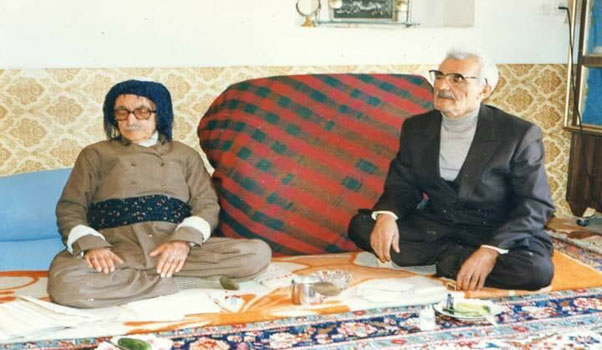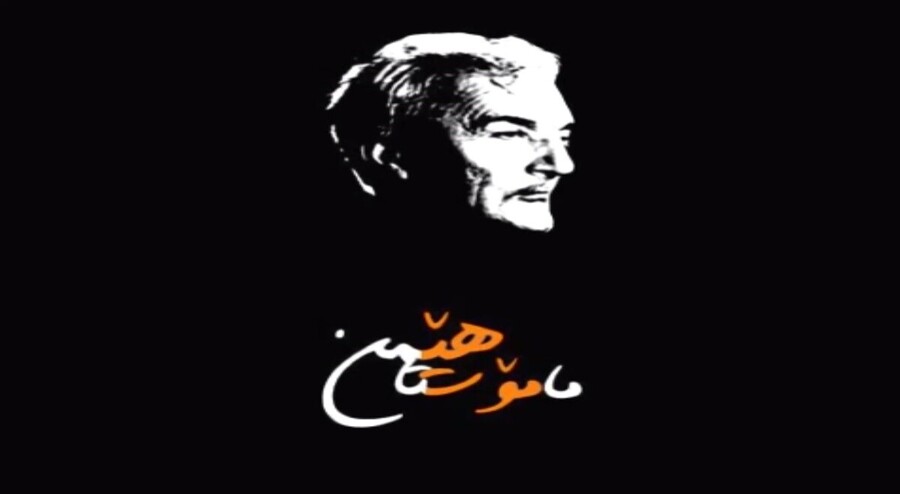Hemin is one of the most famous Kurdish poets of the 20th century, who has received much attention, especially after his death. What I find interesting is why so much of the poet's work is a call to loneliness and deep sorrow that has been heard less and repeated more. Beyond the words and verses of Hemin's poems, especially those works that strongly reflect hopelessness, separation, distance, sorrow, and loneliness, they show the reader the faces of two people. The first is a person that is talking about the political and social instability of a nation and his concern is the concern of all those who think like him and are healed by the pain of the Kurds. In other words, as Shamlu says, he cries about “the common pain of all” and wants to work through this window to raise awareness in society to become a position where everyone can shout and repeat the voice that speaks of public pain. The second person who appears behind Hemin's poetry and the reader sees it is a lonely poet in a society that was once a source of their cry.
The question is how a revolutionary poet at one time in his life can become so strange to those who were not only his acquaintances, but also his citizens, comrades, friends, and colleagues.
If we want to look more closely at the first person, we see someone speaking instead of me in groups and the pain he feels and can put into a poetic framework, the pain of an oppressed nation. We see this phenomenon in his first poems written in 1942.
Although I am facing pain, sorrow, and suffering
I will never get defeated by this unfaithful wheel, I am a true man
I am not in love with pretty eyes and neck
I am in love with the mountains, valleys, rocks, and hills
If today, I die of hunger or cold
I will never serve a foreigner as long as I live
I am not afraid of chains, ropes, hanging logs, or prison
If they kill me or chop my body, I still say I am Kurd
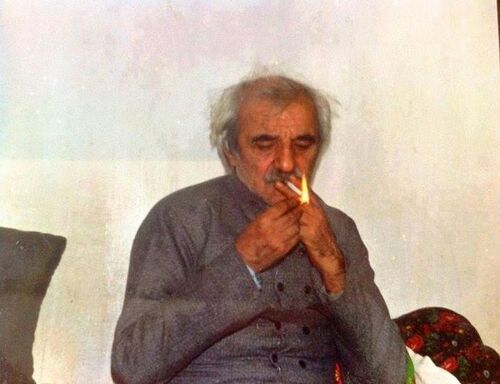
In this poem, the “chains, ropes, hanging logs, and prison” that Hemin brings to light and reveals their hidden faces in front of the reader's eyes are the tools that have surrounded the entire Kurdish society despite the pain of xenophobia in that atmosphere must find a way.
In the poem "Gone with the Wind" again the "poet/bird/nation" speaks. In the allegory created by the poet, he brings up another common pain; which is the captivity and subjugation of the skilled and positioned person in this text, the virtual example is Bulbul, the real example is Hemin, and the general example is all those who are taking steps in the unfavorable situation of subjugation and taking a step forward for the Kurdish future.
Initially, Bulbul mourns the pain of an unfavorable life, addiction to the cage, and all the obstacles of society. Until the true bird of the poem answers it and explains that a prominent person is always opportunistic and their difference is a disaster and an obstacle for them. That is parts of society and the system, which feel the person emphasized, take a stand and remove them from their center. This means that both the part of society that has surrendered to the spheres of power and the part of the power that is controlling the cultural nodes and social engines are either bound or exiled. But since it is a common problem and requires more activity until the enemy sees me as a living phenomenon, the only reason for my revival must remain: my knowledge and giving awareness. I will identify this discussion in several parts of the poem.
For the pain of an unbalanced life
A sad nightingale cries loudly
It sang so sadly that I am poor
My wings are falling down, I am old
If you are a bird of the forest
The cage will age you even if it is made of gold
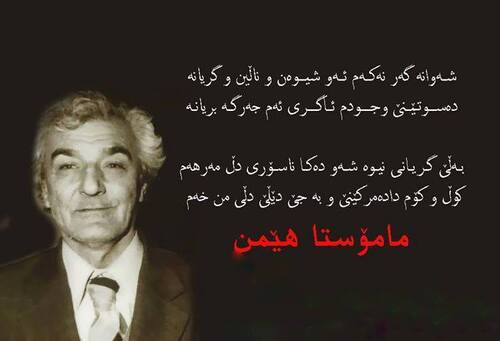
In the poem "Anger" we again see an idea in which the poet describes the result of understanding and knowledge for me was nothing except misery. Until he finally says, “In this country, someone who is awakened faces sadness and mourning.”
There are many such writings in Hemin's poetry that are a voice of protest and the voice is public and cry. However, in two poems, Sazi Nasaz (The Unturned Instrument) and Ewarey Payiz (The Autumn Evening), and of course in several other texts, the speaker is described as a second person. A poet who is excluded from his own society. If we want to talk about the reasons, it is not appropriate in this short article and I will only mention one point. What is clearly evident in many of Hemin's texts and has caused the poet's anger, boredom, loneliness, and depression is his way of thinking, believing, and confronting the prominent person in society; this is characteristic of many Eastern societies, and many sources can be read for more information, one of which is the sociology of killing the elites. A society whose social environment has not yet become such that the elite and innovative person knows that “in today's market of life, his products are growing and wanted”. There may be many excuses that Hemin said we do not want anything from our society and replied to Mamosta Hazhar, “What do we want from these people? We have become poets of our own free will." In response to these writings, it must be said that Hemin who writes poetry speaks more honestly and without hesitation and in short is not afraid of being evaluated by society. So he says:
In today's literary market, your poetry is quite worthless
Like wrinkled money and it is not popular
This reaction has already existed in the poetry of poets. Misbahudiwani Adab said decades earlier:
Adab, I am going to leave literature for a while
Since for the illiterates, it is worthless to talk about literature
But for Hemin, that feeling has reached the deepest level of sadness and loneliness. To continue this discussion, let's look at "Ewaray Payiz" (Autumn Evening). "Autumn Evening" is read in many theories and ways and is a poem that contains so many aesthetic and meaningful aspects that can be read both in a new couplet and talk about the unity of content and form and also can be discussed on the reactions of the poet to social classes and can be seen in a socially realistic way. But if we look at the person and the narrator of the poem from another angle, we see someone who does not have the slightest hope and brightness to continue the trend he has taken. A man whose “beauty (love) has closed the door” and has no trace of him. He sees with his own eyes how the naked worker shows pain and poverty. The whole face of the world environment is sizzling and falling apart, and the way in front of it, the ugliness is lined up in.
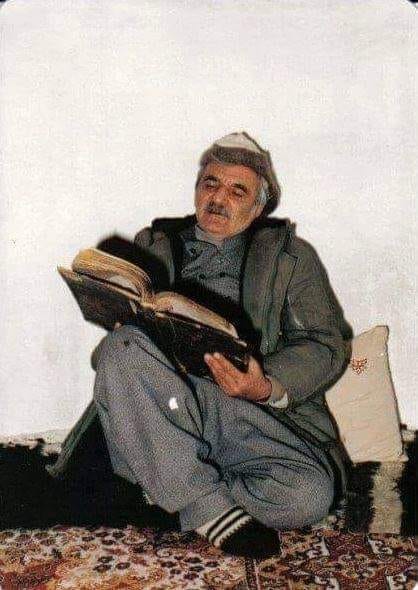
Here Hemin is the king of despair and failure that the street soldiers are ugly and have lined up, and he passes in front of them. So, strange and devastating questions arise in his mind. Questions that can shake society. If he speaks of pain here and wants to go and live with them, it is not the same pain he shared with his community. Here is the pain of loneliness and his own personal wound. Here he is even unsure of human feelings and asks, "How can anyone laugh on an autumn evening?"
At the end of his poem, unlike many others, there is no mention of optimism in the language itself. Therefore, he believes that "our portion, his person, is perishing". The one who answers, “Look far, the horizon (future) is bright,” is someone else who makes him happy and gives him hope, otherwise the poet himself has flown to hopelessness.
In the poem "Sazi Nasaz" (The Unturned Instrument), he removes that known person (acquaintance). In this poem, a human speaks who finds himself in every sterile and unproductive phenomenon. He reaches a point where he becomes confused about his own existence and doubts them. In the midst of all these bitter and devastating feelings, he says to the reader, the lover, the people, and society:
I am the broken-wing nightingale on the flower
The waves hit my hurt heart
I am a Kurd of Newroz morning songs
My passionate heart is burning
I am a fireless Mogh in a Yalda night
I am waiting for my unclear faith
In short, Hemin was a man who posed many questions. His discussions and questions in this section of his poems are still weighty and waiting for answers. The current situation in the general space of Kurdish culture is neither brighter than the era described by Hemin, nor is society more sensitive towards its own elite people. Is not it the time to ask, like Hemin, again that "acquaintance, is our fate destruction?
